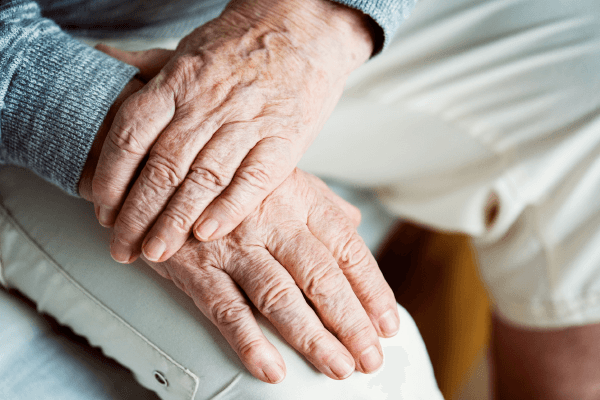Medical alert systems are not a new invention. For decades, seniors have used in-home systems for peace of mind by giving them a stable connection to the outside world. New cellular medical alert systems allow seniors to feel confident and safe while on the go.
Most major medical alert system manufacturers offer cellular medical alert systems. These systems work even if the user’s landline fails and can be used outside the house, freeing seniors to go shopping, run errands or attend senior centers while still having a connection to an emergency helpline.
Here we look at three of the best cellular medical alert systems for active seniors.
Medical Alert: Best for Low Prices
Medical Alert’s On-The-Go offering is an affordable cellular medical alert system. It comes with a water-resistant device with a five-year battery life, giving users peace of mind that they can rely on the alert system at home and while on the move.
The cellular system relies on AT&T, so it should have good coverage across most parts of the United States. Support is available in 140 languages via the International Language Line translation service.
There are no installation or activation fees for Medical Alert devices, and their pricing is competitive, with the On-The-Go costing $37.95 per month on the month-to-month billing package. There are discounts for those who sign up for an annual or semiannual plan. Fall detection costs an additional $10 per month; however, this is common across most providers today.
Medical Alert is a longstanding provider of personal medical alert devices, and their fair pricing, including a 30-day money-back guarantee and easy cancellation policy with no penalties, means seniors can try the brand with confidence.
Bay Alarm Medical: Best Reputation for Good Customer Service
Bay Alarm Medical offers a mobile system for $39.95 per month. This system is water-resistant and has a three-day battery life. The company is also one of the few to have an in-car cellular offering, which is priced at $29.95 per month and offers automatic crash detection as standard.
As with most providers, the on-the-go offering doesn’t include fall detection by default. This requires an additional fee of $10 per month. There are no activation fees, up-front costs for equipment or installation fees.
Bay Alarm Medical offers support in 170 languages and has a flexible billing policy, allowing users to change or cancel their plans at any time. The customer service team is U.S.-based and available seven days per week.
It’s the company’s reputation for customer service that makes it worthy of inclusion in this list. Where some providers have opaque pricing policies, lengthy contracts, complex billing systems or extra fees for small features, Bay Alarm Medical keeps things simple and affordable. This means seniors always know exactly what they’re paying for and what their bills will be. Customer service agents are trained to provide fair and honest needs assessments and not upsell devices to customers who don’t need them.
RescueTouch: Best for Caregiver Monitoring and Fall Detection
RescueTouch offers a variety of devices at different price points, with even its basic 9-1-1 Direct package having a cellular connection and a five-day battery life. The devices are water-resistant and provide two-way communication.
RescueTouch offers a choice of low-cost unmonitored plans that connect seniors to family members or plans that include monitoring at a contact center. The packages include a lifetime price-lock, so seniors don’t have to worry about subscription fees increasing over time. There’s a one-time purchase fee for the device; however, even factoring this fee into the cost, RescueTouch’s pricing is competitive for seniors who expect to use the device for a year or more.
Two things that set RescueTouch apart from the competition are the caregiver monitoring features and the affordability of fall detection. The Family Response package with Fall Detection is just $5 more than the basic Family Response package.
When users purchase a device, they can add up to five people as contacts, allowing them to choose who is informed in the event of an emergency. Nominated contacts can call their loved ones via the device. This gives loved ones peace of mind and an extra way of reaching out to someone if they aren’t answering their phone.
Which Cellular Medical Alert System is Best?
Cellular medical alert systems offer extra flexibility compared to in-home systems. This makes them a good choice for active seniors, including those who love to shop and socialize outside of the home and seniors with large gardens who spend a lot of time outside, potentially out of range of an in-home base unit.
The above systems are all good choices for on-the-go seniors. Many other manufacturers also provide high-quality devices. Check our list of the best medical alert systems for an overview of the main providers and the features and subscription options they offer.

